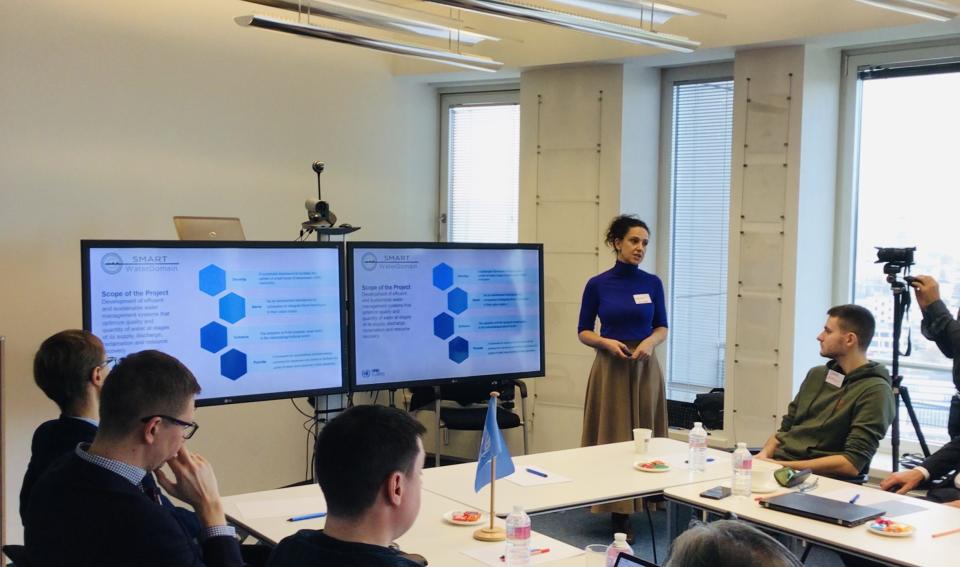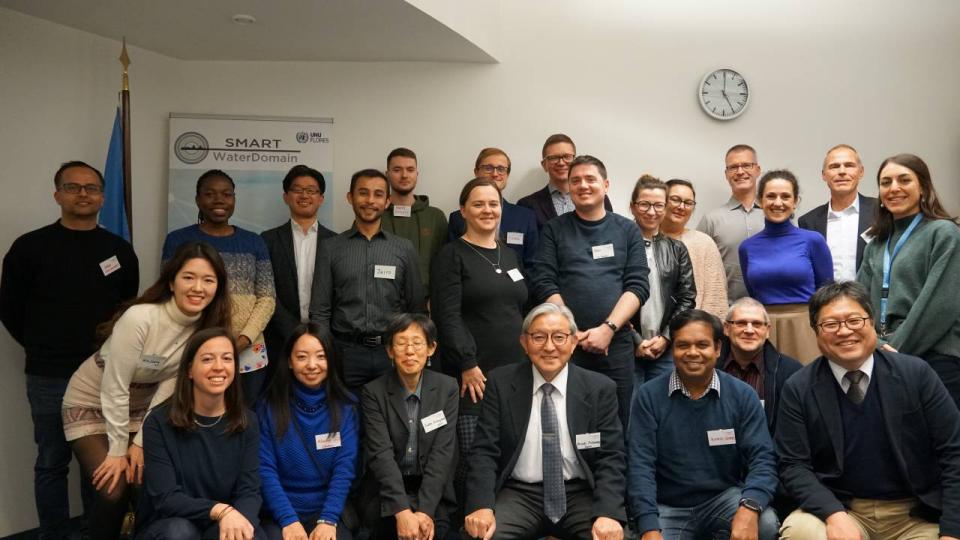Current predictions put forward that almost half of the world's population stands to suffer severe water stress by as early as 2030, with the global demand for water set to outstrip supply by 2040. It is crucial that we close productivity gaps in systems relying on this vital resource, and change trends in water use. The complexity of the problem calls for a holistic, cost-effective, and proactive approach to ensure that water use is sustainable, and to build climate resilience.
Although wastewater reuse on an agricultural and industrial scale offers a potential solution to these growing water stresses, the effective uptake of reuse methods is often hindered by complex factors that range from technical capacity to public acceptance. The SMART-WaterDomain project aims to overcome these obstacles by acting as a connecting agent between the technology and know-how of the IT sector, industry, and community; addressing the gap between theoretical technical capabilities and their actual application in socio-political and cultural environments. By enhancing the adoption of fit-for-purpose water reuse in the agricultural-industrial sector, the project seeks to provide a framework for organisational decision-making processes to facilitate the uptake of water reuse practices in the operations of companies and utilities.
The core goal of the SMART-WaterDomain project is to collaborate with water utilities and industrial partners across specific regions to ensure that economic, societal, and environmental benefits can be maximised through an increased uptake of water reuse.
Despite the value of water reuse to the circular economy, global markets and industries are yet to fully integrate technology into their respective value chains; nor have they included water reuse as part of a smart water management strategy. SMART-WaterDomain explores the potential of water reuse activity under private–public partnerships (PPPs) and aims to contribute to effective integrated water management by creating inter-sectorial synergies at industrial and agricultural scales.

The SMART- WaterDomain international workshop
A major milestone for this project took place in Dresden on 23-24 November, 2022, with the hosting of the SMART-WaterDomain International Workshop by UNU-FLORES. Along with presenting the progress and findings of the research and capacity development activities, the SMART-WaterDomain Team – comprised of partners from Germany, Japan, Slovakia, Lithuania, the Czech Republic, and Poland – used the Workshop as an opportunity for all the researchers involved to gather in-person for the first time – as all meetings had taken place virtually due to the pandemic. This event saw a range of Consortium partners, actors, and donors discuss best practices to balance the inputs of both academics and practitioners in the target countries, and to establish the next steps for the project – including the production of a digital decision support and monitoring tool to utilises real-time data and climate change projections with the key stakeholders across Europe and Japan.
The Workshop aimed to present the progress and findings of the research and capacity development activities carried out since the beginning of the project in 2020. The knowledge produced by the project is fundamental to understanding the progress in water reuse technologies and in strategies in Europe and Japan to enhance the adoption of fit-for-purpose reuse water in the industrial and agricultural sectors and increase the acceptance of water reuse practices for the local economy and society.
Sustainability in focus
All contributors to the SMART-WaterDomain actively acknowledge the importance of creating an environment to enable a paradigm shift in attitude concerning water reuse in industrial and agricultural settings. The project will now focus on facilitating an international and inter-disciplinary dialogue with businesses, UN agencies, and public authorities. The continued involvement of a number of key actors from diverse fields will be critical to the development of economically feasible, technologically viable, and long-term sustainable wastewater reuse practices.
The SMART-WaterDomain project also contributes to circular economy solutions and the UN 2030 Agenda on Sustainable Development in both the partner countries and globally. Specifically, the project supports the achievement of Goals related to clean water and sanitation (SDG 6), industry, innovation and infrastructure (SDG 9), sustainable cities and communities (SDG 11), responsible consumption and production (SDG 12), climate action (SDG 13), and Partnership for the Goals (SDG 17).
Additionally, through partnering with the Joint PhD Programme in Integrated Management of Water, Soil, and Waste offered by UNU-FLORES, the SMART-WaterDomain cooperates with doctoral candidates in developing the Decision Support System for the purpose of facilitating the reuse of urban water by companies while promoting urban sustainability.

What’s next for SMART-WaterDomain?
The feedback received for the Workshop has so far been extremely positive, and has paved the way for further cooperation with government agencies, industries and donors. Indeed, the main takeaway from the International Workshop was the clear need for the framework and decision-support and monitoring tool, which will collect real-time data on water demands, availability, and quality from a range of industry. The decision-making tool will include a series of climate change projections to enable decision-makers to develop informed water management strategies considering future climate change scenarios.
This year will see the Research Team release the findings derived from the International Workshop, while the project’s upcoming publications will highlight the increasing importance of water reuse in industries and the role of Public-Private Partnerships in optimising urban water management and industrial/business processes.
The SMART-WaterDomain team will also regroup for a series of workshops to be held throughout the partner countries during 2023 – stay tuned for more updates!

